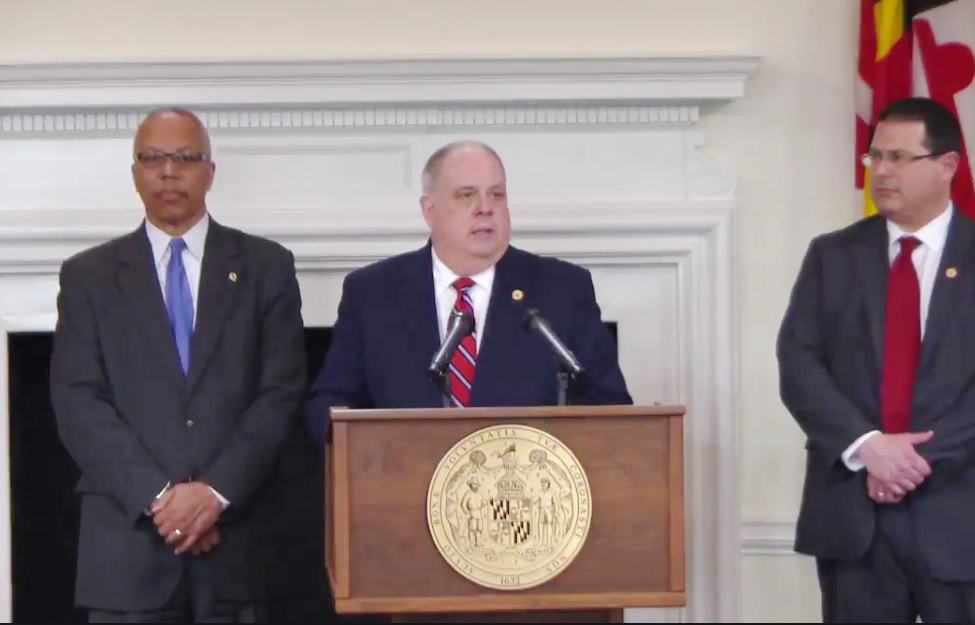Opinion: The fight for earned sick leave in Maryland isn’t over
All workers deserve the option of paid sick leave, so they aren’t forced to choose between their or their family’s health and their income security.
But 700,000 Maryland workers lack this basic right, one granted nationally by all other developed countries besides the US.
The Healthy Working Families Act (SB230), which recently passed the Maryland Senate 29-18, would fix this problem. But Gov. Hogan has promised to veto the bill and is offering a severely diluted alternative — and we can expect business groups to mount a vigorous lobbying campaign to chip away at the Senate’s current veto-proof majority.
Two of these groups, the National Federation of Independent Businesses and the Maryland Chamber of Commerce, appear to be leading the effort to scuttle the Healthy Working Families Act. But their doomsday rhetoric about the bill and its impact on businesses doesn’t hold up to scrutiny.
For example, in an op-ed in the Baltimore Business Journal, the NFIB grossly inflates the amount of sick leave workers would get under SB230, claiming it would allow “employees working an average of 8 hours per week” to receive “up to 7 paid days off.” This is patently untrue. An employee would have to work forty hours per week for a full year to earn this much leave.
The Maryland Chamber of Commerce statement against the bill also gets basic facts about the bill wrong, claiming it “provides paid time off that an employee working an average of only eight hours per week can use in whatever way he or she chooses.” But SB230 includes safeguards against abuse, allowing employers to require medical documentation after three days of consecutive leave.
The Chamber further insists that “employers simply cannot afford the cost of paying the wages on top of tracking compliance.” But that doesn’t square with the evidence: a 2011 survey by the Institute for Women’s Policy Research found that eighty-five percent of San Francisco employers reported no negative effects on profits as a consequence of the city’s paid sick leave law.
Additionally, the Chamber’s case would be better argued were it not the case that, according to the Economic Policy Institute, eighty-seven percent of high-wage workers already receive paid sick leave. If we take the business lobby’s position at face value, we would expect that most companies employing high wage earners would be smoking craters by now.
The NFIB also contends that SB230 would cost Maryland “thousands of jobs.” But that’s not what happened when other states passed similar laws. In fact, a study by Center for American Progress demonstrated that unemployment decreased in all three states (Massachusetts, California, and Connecticut) that had mandated paid sick leave for over a year.
The NFIB article decries SB230 as “feel-good legislation,” as though striving to improve the health and well-being of Maryland workers were a distasteful ambition. Their position seems to be that any law extending protections of any sort to working people should be eliminated, opposing the “thresholds and limits a small employer will be forced to remember” on principle.
Since the cost to businesses is negligible, and a rise in unemployment isn’t borne out by the data, enacting a law that would extend a protection already enjoyed by high-wage workers makes good policy sense and is the right thing to do. It’s also a public health concern. The CDC found that 49 percent of food workers who reported to work with vomiting or diarrhea did so because they couldn’t afford to stay home. Business lobbying groups seem willing to put people’s health in danger to protect their short-term profit margins.
The Healthy Working Families Act would give Maryland workers the freedom to care for their health without sacrificing their income, all while reducing businesses’ turnover rates and ensuring a healthy and reliable staff. Maryland Senate Democrats must remain steadfast on this bill, and the public must demand that their representatives hold strong against a mounting disinformation campaign.

Elliot Swain is a writer, musician, and graduate student in Philosophy and Social Policy. His work has appeared in Common Dreams, Alternet, Salon, and the Code Pink blog.

